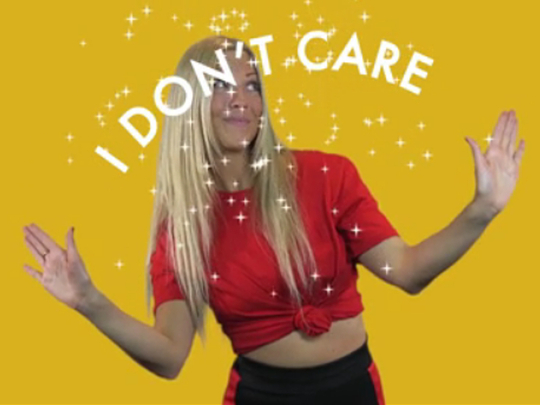
If I were a government official or some sort of celebrity or president, I would be very careful with my online persona. But I am just me. 27 years old, female, living and enjoying life. I take pictures of my food, I geotag my locations, I tweet about things and I update my big life events on Facebook.
Read the oposing side: A little caution goes a long way online
What are they going to do with my information? Target an ad on my Instagram feed? Use my data to sell me some dresses? Maybe even promote a world destination that I “may” be interested in visiting some day? I’m not too worried. As a media studies graduate, current journalist and most importantly, a millennial, I am fully aware of the effects of advertising on our society.
The sneaky way that marketers plant content and send subliminal messages. We see hundreds of ads everywhere we look but do we really, actually, properly see them? Not really. Chancellor and Professor Nora Ganim Barnes at the Centre for Marketing Research in the University of Massachusetts Dartmouth discovered in a recent study done by eMarketer that Millennials born and raised in the age of technology, unlike past generations, are not influenced by advertising.
I am a “digital native”. I am part of the first generation of humans to grow up literally attached to my smart phone and tablet. I hardly remember the times, where I didn’t have access to social media and the internet. The way that I browse and consume information is completely different from past generations. So companies, that gather my information and try to push products in my face, have no idea how fast I skip anything that I suspect is promoted. I won’t fall for it.
On the other hand, I understand that some of you may look at me and think “Wow she is naive”. Don’t worry… I know that they obviously do so much more with my data. I know it goes deeper than that. I know they dig into my life and use my information to figure out where I go and how I spend my time. They see how often I check my phone. I’m sure someone can track my movements by looking through my map history. Our data, when combined with advanced algorithms, can reveal our most intimate secrets.
But I am honestly asking myself here… who cares about my secrets? Who cares that I secretly chat with someone, or have a little addiction to beauty tutorials on YouTube? So what, if I eat out too much or upload stupid photos of myself? What are they actually going to do with this information?
Real life privacy vs online privacy
In an offline world, social communities tend to follow and practise the norms of privacy. You don’t have to share your birthday, address or marital status with the people in your neighbourhood. They don’t need to know your likes and your dislikes and what your breakfast looks like. There are rules against actually physically following people (stalker alert). However, once you become an active member of a social platform site, you have to disclose your personal information in order to be accepted. That’s when they can break all the offline privacy rules. People can follow you, stare at you and even poke you without your consent. Companies can then delve into who you are and what you like. They find out about your habits, your browsing history, where you like to go, what you like to eat and who you interact with the most.
Although cybercrime is a relatively new phenomenon, we’ve been hearing about people’s private data leaking for years. The recent punishing trial of a certain social network founder, who allowed that data to leak was completely justified, don’t get me wrong, I think that Facebook completely missed the mark, but we don’t need to entirely eliminate ourselves from the social networking world.
In defence of social media
The population of social media users is larger than the population of China. There are 2.6 billion people in the world that are part of a social networking platform. The amount of users alone, is a strong indicator of how much people love social media.
During the mid-2000s social media has had a surge in popularity. It completely changed the way we communicate and share information with one another. Social media has overthrown presidents. It has been the force for many revolutions including #MeToo, Occupy Wall Street and the Arab Spring. We can follow the lives of people that we haven’t physically seen in years. We can be proud of the success of our family members.
Social media is a revolutionary tool. People have created jobs, eliminated boredom and inspired others to live better on social media. You can’t deny the good. These days it is far easier to do something that is noteworthy and have it reach people across the planet, whether it’s tweeting from the moon or taking a selfie in space. Social media gives us globalised voices. It completely changed the way we communicate and share information with one another.
The one thing that I am worried about
I don’t care if people know my age, my gender or my search history. The one thing that I would feel weird about, is if someone cracked my profiles and looked at my pictures. You never know who is going to be stalking you on social media. There are a lot of weirdos out there.








